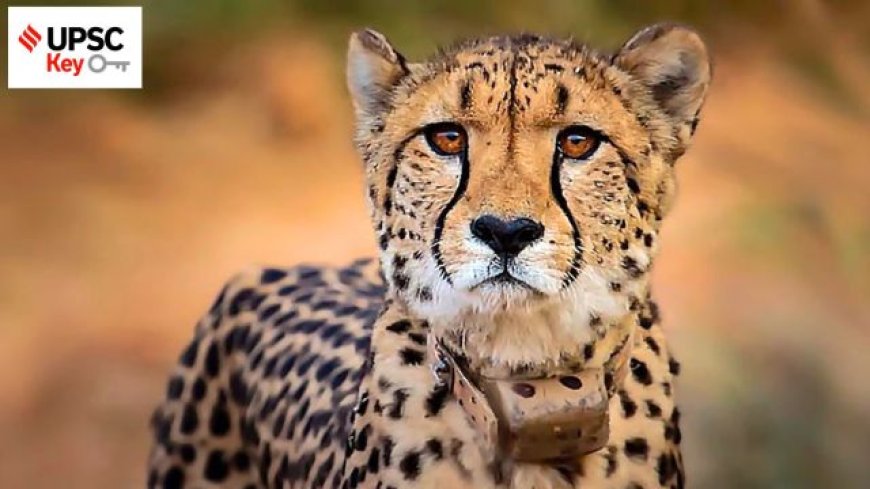UPSC Key: Axiom-4 mission, Project Cheetah, and Tardigrades

UPSC Key: Axiom-4 Mission, Project Cheetah, and Tardigrades
Breaking News, Daily Updates & Exclusive Stories - asarkari
In an era of scientific exploration and technological advancement, the recent developments surrounding the UPSC Key related to the Axiom-4 mission, Project Cheetah, and the fascinating tardigrades have captivated the interest of students, researchers, and nature enthusiasts alike. This article aims to delve into these crucial topics, highlighting their significance and implications for future advancements. The insights presented here are crafted by the team, asarkari.
Axiom-4 Mission: A Leap for Humanity
The Axiom-4 mission represents a pivotal moment in human space exploration, as it aims to take commercial astronauts to the International Space Station (ISS). Scheduled to launch soon, this mission is a collaboration between Axiom Space and space agencies, including NASA. The mission demonstrates the growing role of private companies in space exploration, opening doors for future innovations in research, tourism, and even interplanetary travel.
The impact of the Axiom-4 mission extends beyond the frontiers of space. It serves as a reminder of the human spirit's unwavering desire to explore the unknown. This mission, alongside the surge of interest in space technology, is preparing the ground for a new era of possibilities. With an emphasis on safety, sustainability, and international collaboration, the Axiom-4 mission is set to become a landmark in space history.
Project Cheetah: Revitalizing the Ecosystem
Meanwhile, back on Earth, Project Cheetah is making headlines as a proactive initiative aimed at conserving the cheetah population in India. This ambitious project seeks to establish a breeding and relocation program for the Asiatic cheetahs, which have faced significant threats to their survival over the years due to habitat loss and poaching.
Project Cheetah is not just about saving a species; it encompasses the broader goal of reviving ecosystems, promoting biodiversity, and ensuring ecological balance. The project has drawn attention from conservationists and wildlife enthusiasts, emphasizing the importance of preserving our planet’s rich biodiversity. Successful implementation can serve as a model for other endangered species and contribute to global conservation efforts.
Tardigrades: Nature's Resilient Micro-Animals
In a world where extinction rates are alarming, tardigrades, often called "water bears," stand out with their extraordinary resilience. These tiny creatures can survive extreme conditions, including intense radiation, extreme temperatures, and even the vacuum of space. The hardiness of tardigrades points to potential advancements in fields like biotechnology and medicine, inspiring researchers to explore their unique survival mechanisms.
The study of tardigrades opens new avenues in astrobiology, as their resilience could provide clues to the existence of life in extraterrestrial environments. Their indelible mark on scientific research poses questions about life’s potential forms beyond Earth, making them a subject of great interest in contemporary studies.
Conclusion: The Future Ahead
As we explore the expansive realms of space and conservation on our planet, the ongoing projects like the Axiom-4 mission, Project Cheetah, and the captivating studies into tardigrades remind us of humanity's resilience and ingenuity. Embracing these advancements is essential, as they pave the way for a more sustainable and aware future. Such developments not only offer hope for the preservation of our natural heritage but also inspire scientific inquiry that can lead to spectacular discoveries.
For more updates, visit https://asarkari.com
Keywords:
Axiom-4 mission, Project Cheetah, tardigrades, conservation, space exploration, biodiversity, sustainability, wildlife, Indian wildlife, research advancementsWhat's Your Reaction?
 Like
0
Like
0
 Dislike
0
Dislike
0
 Love
0
Love
0
 Funny
0
Funny
0
 Angry
0
Angry
0
 Sad
0
Sad
0
 Wow
0
Wow
0









































